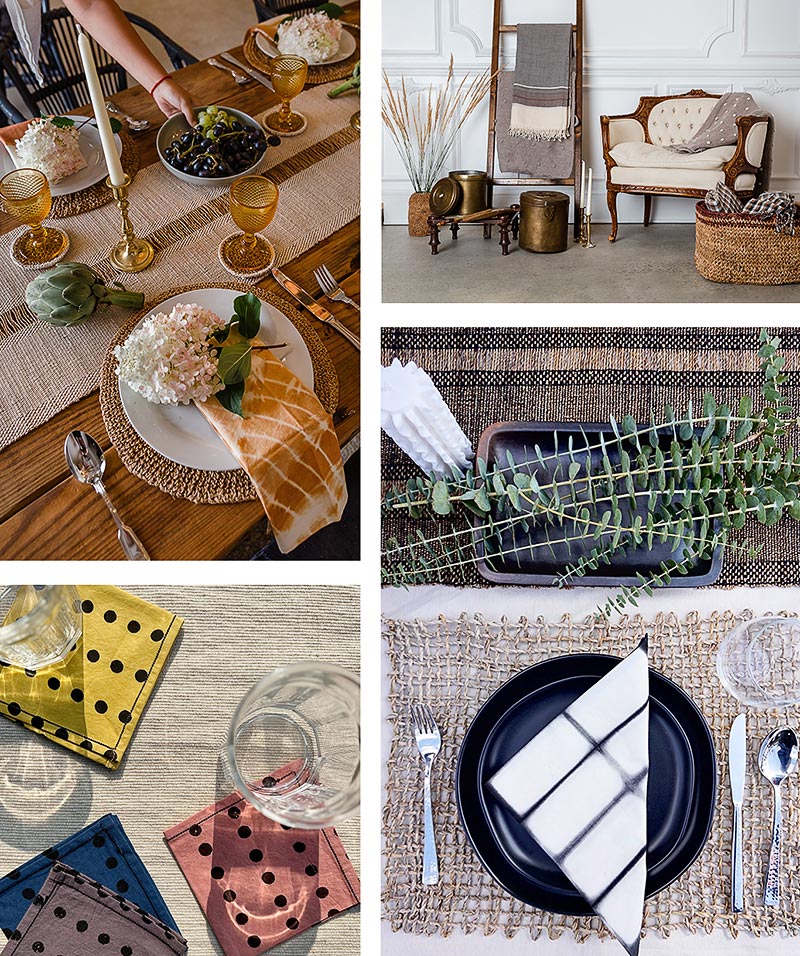Sustainable Style
By Naperville Magazine
October 2023 View more Shop
By Judy Sutton Taylor
Naperville-based TerraKlay offers eco-conscious handmade home goods from India that don’t skimp on looks

Manvee Vaid knows all about bouncing back. From her Naperville home in 2016, she launched TerraKlay.com, an online shop selling black-clay pottery from her native India. Her goal was to create opportunities for women artisans whose families had been practicing the craft for generations. But a one-two punch of widespread flooding in India in 2019 from its strong monsoon season followed by the COVID pandemic in 2020 halted production and nearly forced her to cease operating.
Around the same time, Vaid also was doing volunteer work, translating Hindi for a group of loomers. She commissioned them to make a blanket for her. When she received it, she knew other people, too, would like such blankets to make pandemic time at home more comfortable. Same was true of other quality home goods.

“I envisioned a product line made up of items that could be manufactured from the artisans’ homes,” she adds. Connecting with contacts she made working in the fine arts and textile fields in India—plus lots of cold calling—Vaid formed partnerships with more artisan groups, focusing on women and differently abled adults. She relaunched TerraKlay last year, collaborating with these groups to design and produce a line of handmade products that includes baskets, planters, napkins, kitchen towels, cups and mugs, bath towels, and more.
“We have a rich tradition of handmade in India, especially when it comes to weaving and knitting and dyeing,” she says, recalling time spent with her mother and grandmother while they knitted and crocheted. “It’s when customs and oral histories get passed down, but it is losing importance. I wanted to bring it back.”
All of TerraKlay’s products are sustainable—they’re crafted with ethically sourced, organic, and biodegradable materials from farmers committed to using rain-fed practices and fewer pesticides. Waste is kept to a minimum: Scraps from making aprons, for example, are used to create oven mitts and hot pads. And because they’re handmade, they leave a smaller footprint.
“We’re conscious of the fact that we have a limited supply of natural resources,” Vaid says. The most popular products are hand-loomed kitchen towels, shibori cotton napkins, and other tabletop items. “Cooking and entertaining are a focus in all cultures,” she adds.
Vaid believes customers care about where their products come from and the people who make them. “These are items that tell a story,” she says, adding that she visits her artists to get to know them before doing business and ensures they are paid a fair living wage for their work. “This is about women coming together, earning their own money, and understanding their worth,” she says. “It’s a win for people and the planet.”
Photos: Manvee Vaid


